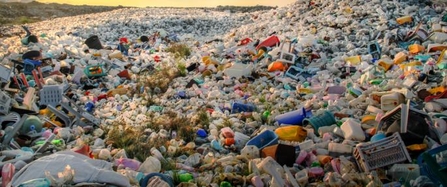Figures show that overall recycling rates have continued to stall, resulting in a 'packaging waste mountain'. How does this impact on our marine wildlife?
Today, the Department for Environment, Food & Rural Affairs (Defra) has released the latest waste and recycling figures for the UK. Recycling rates have continued to stall, with only 44.6% of our waste currently recycled and the amount of recyclable waste ending up in landfill, or being destroyed, rising to over 15 million tonnes in 2016. The continued growth in our demand for plastic combined with stalling recycling rates has left us with an extra 226,000 tonnes of packaging waste to dispose of this year - leaving us facing an ever growing 'packaging waste mountain'.

